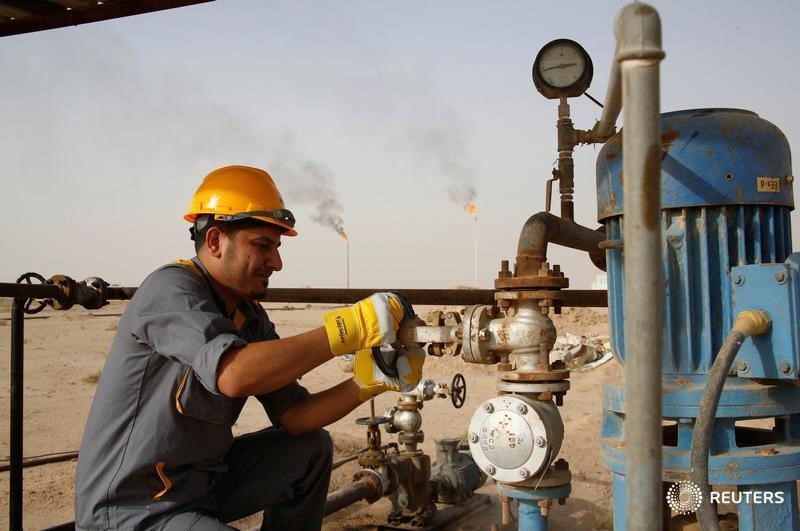By Barani Krishnan
Investing.com - The oil rally has got an unexpected shot in the arm from Saudi Arabia’s surprise replacement of its oil minister.
Crude prices jumped about 2% Monday after Saudi King Salman appointed one of his own sons, Prince Abdulaziz bin Salman, to take over from Khalid al-Falih to run the most important ministry in the country that leads OPEC. Known as ABS by his initials, Abdulaziz is a long-time Saudi delegate to OPEC and brother to Mohamad bin Salman, or MBS, another of King Salman’s sons and arguably the most powerful man in Saudi Arabia after the monarch.
New York-traded West Texas Intermediate crude, the U.S. benchmark blend, settled up $1.33, or 2.4%, at $57.85 per barrel. Last week, WTI rose 2.6%, its biggest weekly advance since July.
London-traded Brent crude, the international benchmark blend, extended its perch further above the key $60 level, rising $1.05, or 1.7%, to $62.59.
“Oil bulls are greeting ABS’ appointment as a sign that Saudi Arabia is going to get better in its game of pushing up crude prices, something that Khalid al-Falih, unfortunately, never got to achieve in his time,” said John Kilduff, founding partner at New York energy hedge fund Again Capital.
“Then, there’s also the question of the pending listing of Saudi Aramco, which has suffered for a host of reasons, some beyond Falih’s control. There’s renewed hope that ABS will be better at sorting out all these.”
Aramco, the kingdom’s state oil company, is preparing to sell up to a 5% stake by 2020-2021, in what could be the world’s biggest IPO, Reuters reported on Monday. It has given lead roles in the listing to JPMorgan (NYSE:JPM), Morgan Stanley (NYSE:MS) and National Commercial Bank, among others.
The OPEC+ joint ministerial monitoring committee, known as JMMC, will meet on Thursday in Abu Dhabi to review the cartel’s commitment to reduce 1.2 million barrels per day of supply since December.
ABS helped negotiate the OPEC+ agreement between the established producer cartel and non-members led by Russia to cut global crude supply in order to support prices and balance the market.
The newly appointed Saudi minister said the pillars of Saudi policy would not change and that the OPEC+ deal would survive.
OPEC aggregate output rose for the first time this year in August as higher supply from Iraq and Nigeria outweighed restraint by Saudi Arabia and losses caused by U.S. sanctions on Iran, a Reuters survey found.
On Sunday, the United Arab Emirates' energy minister, Suhail bin Mohammed al-Mazroui, said OPEC and non-OPEC producers were "committed" to achieving oil market balance and that Abu Dhabi would support any consensus decision on further production cuts.
Crude prices on Monday were also supported by a rise in oil imports in China in August, with shipments to the world's biggest importer up 3% from July and nearly 10% higher in the first eight months of 2019 from a year earlier.
Adding to the market’s upside was a privately circulated report from market intelligence Genscape that reported a 980,000-barrel crude inventory drop at the Cushing, Oklah. hub that serves as storage for WTI contracts meant for delivery, according to traders who saw the data.
Cushing storage is often a good indicator of the crude stockpile situation across the United States. U.S. crude inventories as a whole have fallen nearly 15 million barrels in the two weeks to Aug. 30, helping drive oil prices higher.
